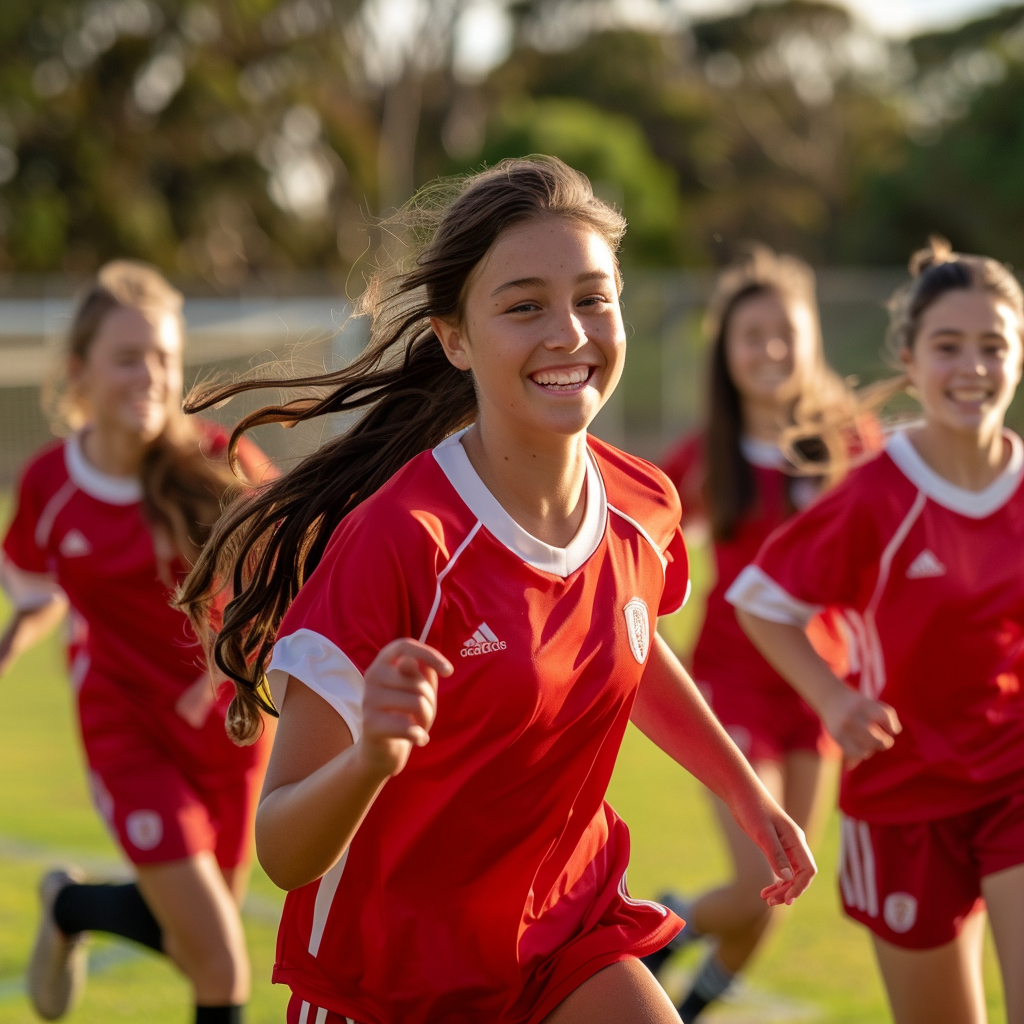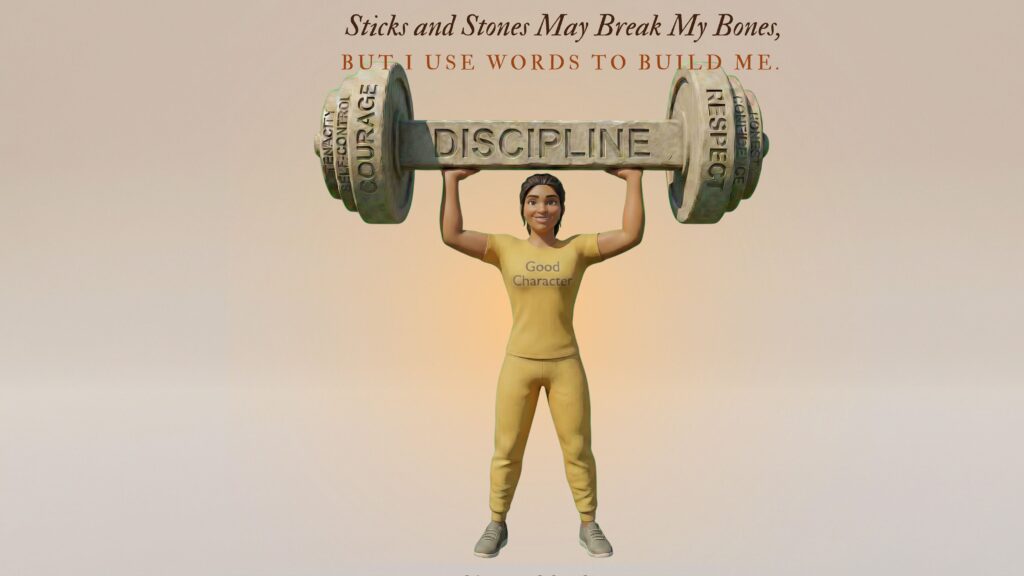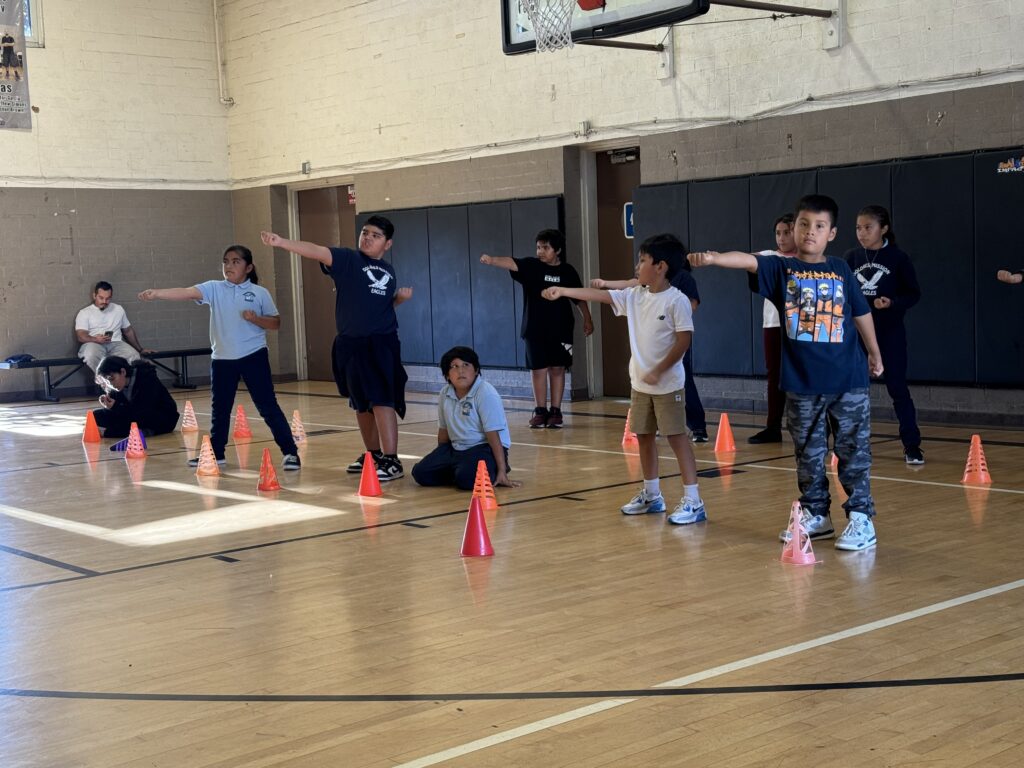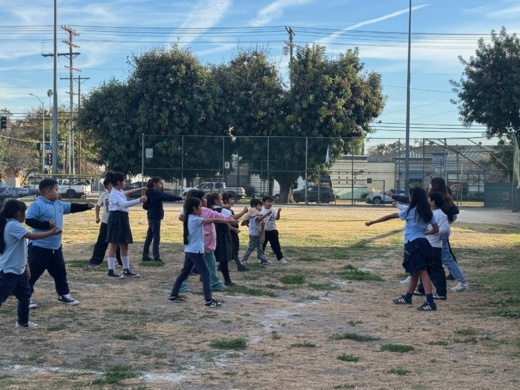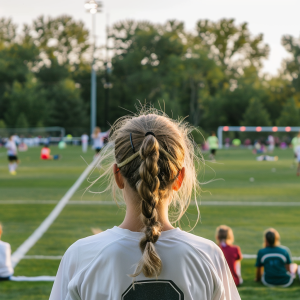 In recent years, there has been a concerning trend: young people (predominantly teenage girls) are dropping out of sports at an alarming rate. USA Today states that approximately 70% of kids drop out of youth sports by age 13, according to a study performed by the American Academy of Pediatrics (Borelli, 2024).
In recent years, there has been a concerning trend: young people (predominantly teenage girls) are dropping out of sports at an alarming rate. USA Today states that approximately 70% of kids drop out of youth sports by age 13, according to a study performed by the American Academy of Pediatrics (Borelli, 2024).
Of that 70%, approximately 43% are female (Guajardo, 2023). Despite the undeniable benefits of physical activity, such as improved mental health and confidence, something is causing young women in particular to disengage from athletic pursuits.
While these statistics paint a stark picture, the circumstances behind them are even more dire and complex. Societal pressures and body image issues, gender stereotypes / “locker room culture”, and lack of access to resources all play a role in shaping girls’ attitudes towards sports. Moreover, the competitive nature of many sports environments can be intimidating, particularly for those who feel self-conscious or marginalized.
Unfortunately, this trend continues into adulthood, contributing to a significant gender gap in athletic participation and representation. We’ll discuss these issues and how to combat the negative effects of social media/stereotypes in this blog, and in part two we’ll cover how the lack of access to resources is shutting out young women across the country.
Social Media and the Pressures of Body Image
It’s no secret that the overuse of social media today has negatively affected young women:
“…research has largely reported adverse influences from adolescents’ social media use, contributing to mental health difficulties including increased depression, anxiety, and self-harm behaviors, decreased socio-emotional wellbeing, low self-esteem and negative body image” (Papageorgiou, 2022).
While it can be used for personal connections, entertainment, or even keeping up on current events, the overwhelming focus within social media is on appearance. In today’s society, there’s a pervasive belief that one’s worth is intricately tied to how they are perceived on social media platforms like Facebook, Instagram, and TikTok. (Papageorgiou, Fisher & Cross, 2022).
For young girls, the intensity of their body changing and the importance of approval from peers increases vulnerability to negative body image – research suggests social media may have a greater influence on their body dissatisfaction compared to boys (Papageorgiou, Fisher & Cross, 2022).
“Girls can now easily and frequently compare themselves to those they follow on Instagram, whether they are peers or celebrities.” (Papageorgiou, Fisher & Cross, 2022).
In addition, the Women in Sport foundation (2024) found that 65% of girls don’t like others watching them during sports, as it makes them feel self-conscious, vulnerable, and objectified. Between tying one’s value to diluted perceptions on social media and the vulnerability of feeling self-conscious and objectified, young women are dropping out of sports in their teens at a rate of almost 2 to 1 over boys (Papageorgiou, Fisher & Cross, 2022).
This consistent and cumbersome pressure to live up to the existing suffocating expectations raises the question: How do we advocate for body positivity and confidence in female youth sports?
Perhaps one of the most surprising solutions comes from Nike: more female coaches.
More Female Coaches and Battling the Stereotypes
 CNBC reports that approximately 75% of youth head coaches are male, and “even when women are offered the opportunity to coach, they are fearful that they’re not good enough to take on such a position because of the sexist stereotypes society often promotes” (Balasaygun & Goldberg, 2023).
CNBC reports that approximately 75% of youth head coaches are male, and “even when women are offered the opportunity to coach, they are fearful that they’re not good enough to take on such a position because of the sexist stereotypes society often promotes” (Balasaygun & Goldberg, 2023).
Vanessa Garcia-Brito, Vice President of Nike, stated that most young people completely miss the opportunity to be coached by a female and that is part of the reason why they created the COACHING HER initiative (Balasaygun & Goldberg, 2023). This initiative is partnered with the Tucker Center for Research on Girls’ and Women in Sports based out of the University of Minnesota and this “digital coaching resource is designed to help coaches of all genders improve their understanding of gendered bias and discrimination in sports” (Balasaygun & Goldberg, 2023).
Female coaches are not just important to act as a role model, but also to provide a safe space for young women to discuss concerns and issues like stereotypes. While many athletes may have participated in sports in their early lives, the inevitably rocky transition into the teen years can often sway perceptions and negate positive association with physical activity.
The Tucker Center, Nike’s partner, gathered data globally and found that the highest rate of drop-off from girls in sports often occurs between the ages of 11 to 17, “the range when girls feel the most pressured to conform to identities shaped by their peers and adults — which includes coaches,” its report states, and it concluded that how girls feels about their coaches is a determining factor in whether they continue to play organized sports (Balasaygun & Goldberg, 2023).
Positive role models within the sport and a supportive leader have proven to not only elevate young women in sports, but also encourage them to advance beyond their teen years.
Mary Fry, a Kansas University Professor in Sport and Exercise Psychology, points to a few important factors to consider when coaching young women: build their confidence, create a safe and supportive environment to express concerns, and encourage them to move past mistakes or challenges as an opportunity to learn (Guajardo, 2023). Fry states, “They’re more committed to both continuing in the sport and the team that they’re on…They have better psychological well-being, better control of their emotions, emotional regulation. When bad things are happening, they can deal with it and keep it in perspective.” (Guajardo, 2023).
While effective and supportive coaching can tear down stereotypes and is a pivotal aspect of attracting and retaining young women in sports, building their confidence and self-assurance is equally vital.
Building Confidence and Self-Assurance
Also partnering with Nike and the Tucker Center to promote young women in sports is personal health care giant Dove who has created the “Body Confident Sport” program which emphasizes the importance of body positivity and self-confidence.
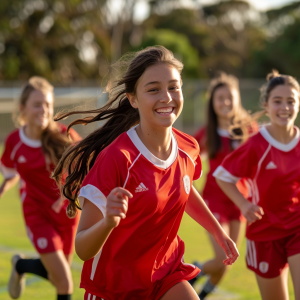 Over their three-year partnership with Nike, the Tucker Center, and the Center for Appearance Research, Dove has gathered input from girls and coaches from six countries, including France, India, Japan, Mexico, the U.K. and the U.S. (Dove, 2024). With this research, they have created online resources for both sports participants and coaches that are accessible through their Body Confident Sport website.
Over their three-year partnership with Nike, the Tucker Center, and the Center for Appearance Research, Dove has gathered input from girls and coaches from six countries, including France, India, Japan, Mexico, the U.K. and the U.S. (Dove, 2024). With this research, they have created online resources for both sports participants and coaches that are accessible through their Body Confident Sport website.
Through this program, Dove stresses the importance of recognizing what your body can do in relation to physical activity in sports versus “what does my body look like while I’m playing” (Dove, 2024). Because 52% of girls say that they quit sports due to negative comments about their bodies, this shift of focus on ability instead of appearance helps young women ignore the pangs of self-consciousness and focus more on their value as a sports participant (Dove, 2024).
On a more personal level, parents play a large part in modeling positive body behavior. Through praising effort instead of performance, staying away from “good” or “bad” language/connotations regarding appearance (“I was bad today, and ate junk food. Now I’m going to be overweight.”) and focusing on the benefits of participating in sports, parents can guide their daughters into a healthier vision of team sports.
Skill acquisition of any kind is a natural confidence boost – “We’re meant to grow, stretch, extend and expand,” stated Dennis Buttimer, M.Ed, CEAP, RYT, CHC, a life and wellness coach at Piedmont Medical. “As you learn new skills, you’ll discover more gifts about yourself and improve your confidence and sense of well-being.” (Piedmont, 2024).
As a beginner goes through the challenges of learning something new, they often experience an associated euphoria when they surpass expectations and meet their goals. This instills an inherent sense of self-confidence in their own abilities and elevates overall self-esteem. We see this frequently within our own martial arts environment.
It’s important for everyone involved in women’s sports to reaffirm our commitment to leveling the playing field and fostering inclusivity and empowerment. Together, we can rewrite the narrative, creating a future where every young woman feels valued, supported, and empowered to reach her full potential on and off the field.
 It’s evident that we’re facing a critical juncture. The stark discrepancy between the dropout rates of girls compared to boys in sports demands our attention. We’ve unearthed some of the underlying factors: the insidious influence of body image ideals and the weight of societal pressures that bear down disproportionately on young women.
It’s evident that we’re facing a critical juncture. The stark discrepancy between the dropout rates of girls compared to boys in sports demands our attention. We’ve unearthed some of the underlying factors: the insidious influence of body image ideals and the weight of societal pressures that bear down disproportionately on young women.
Yet, amidst these challenges, there are beacons of hope. Female coaches emerge as pivotal figures in retaining young women in sports, offering mentorship, guidance, and a relatable perspective that resonates. Their presence underscores the importance of representation and highlights the transformative impact of having role models who defy stereotypes and provide personal experience and support.
We also cannot deny the transformative power of building confidence through the acquisition of new skills. Whether it’s mastering a martial arts technique or honing a craft, the journey of skill acquisition inherently fosters confidence, resilience, and self-belief. By nurturing this sense of empowerment, we can embolden young women to navigate the turbulent waters of adolescence with courage and grace.
Looking ahead, it’s clear that our work is far from over. In part two of this series, we’ll jump into another pressing issue: the mass exodus of young women from sports due to a lack of resources. From inadequate facilities to financial barriers, we’ll examine the systemic challenges that hinder female participation and explore actionable strategies to dismantle these barriers brick by brick.
References
Balasaygun, K. and Goldberg, N. (2023). Nike’s Approach to Solving the Biggest Problem for Girls in Sports. CNBC. Retrieved from https://www.cnbc.com/2023/06/18/nikes-approach-to-solving-the-biggest-problem-for-girls-in-sports.html
Borelli, S. (2024). 70% of Kids Drop Out of Youth Sports by Age 13. Here’s Why, and How to Fix it. USA Today. Retrieved from https://www.usatoday.com/story/sports/2024/01/22/70-of-kids-drop-out-of-youth-sports-by-13-new-aap-study-reveals-why/72310189007/
Dove. (2024). Self-Esteem Project: Body Confident Sport program. Retrieved from https://www.dove.com/us/en/dove-self-esteem-project/dove-x-nike-our-body-confident-sport-program.html
Guajardo, A. (2023). Girls Dropping Out of Sports Spark Concerns and Conversations. Scripps News. Retrieved from https://scrippsnews.com/stories/girls-dropping-out-of-sports-spark-concerns-and-conversations/
Papageorgiou, A., Fisher, C. & Cross, D. “Why don’t I look like her?” How adolescent girls view social media and its connection to body image. BMC Women’s Health 22, 261 (2022). https://doi.org/10.1186/s12905-022-01845-4
Piedmont Medical. (2024). The Mind/Body Benefits of Learning a New Skill. Retrieved from https://www.piedmont.org/living-real-change/the-mind-body-benefits-of-learning-a-new-skill
Women in Sport. (2024). Retrieved from https://womeninsport.org/
